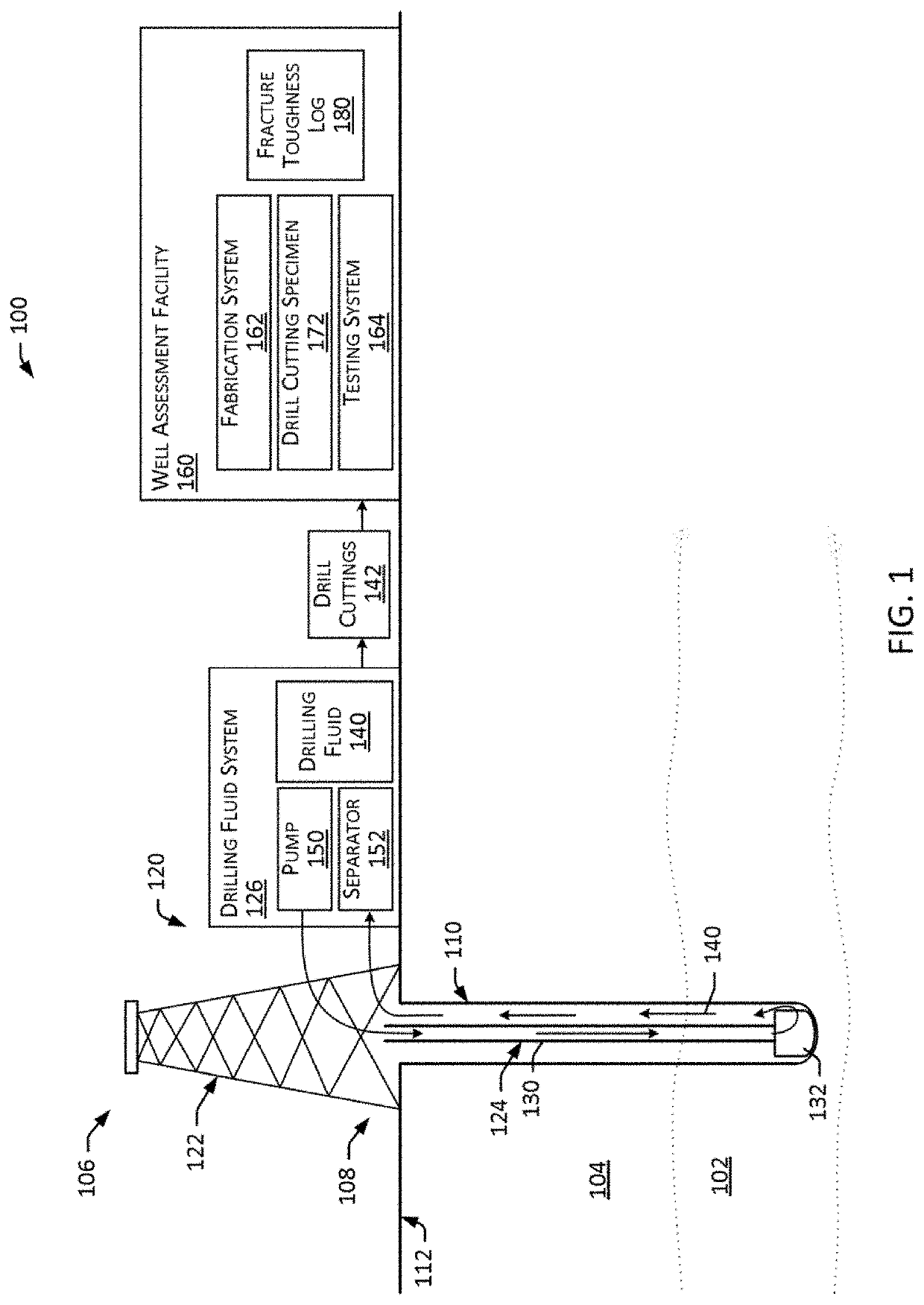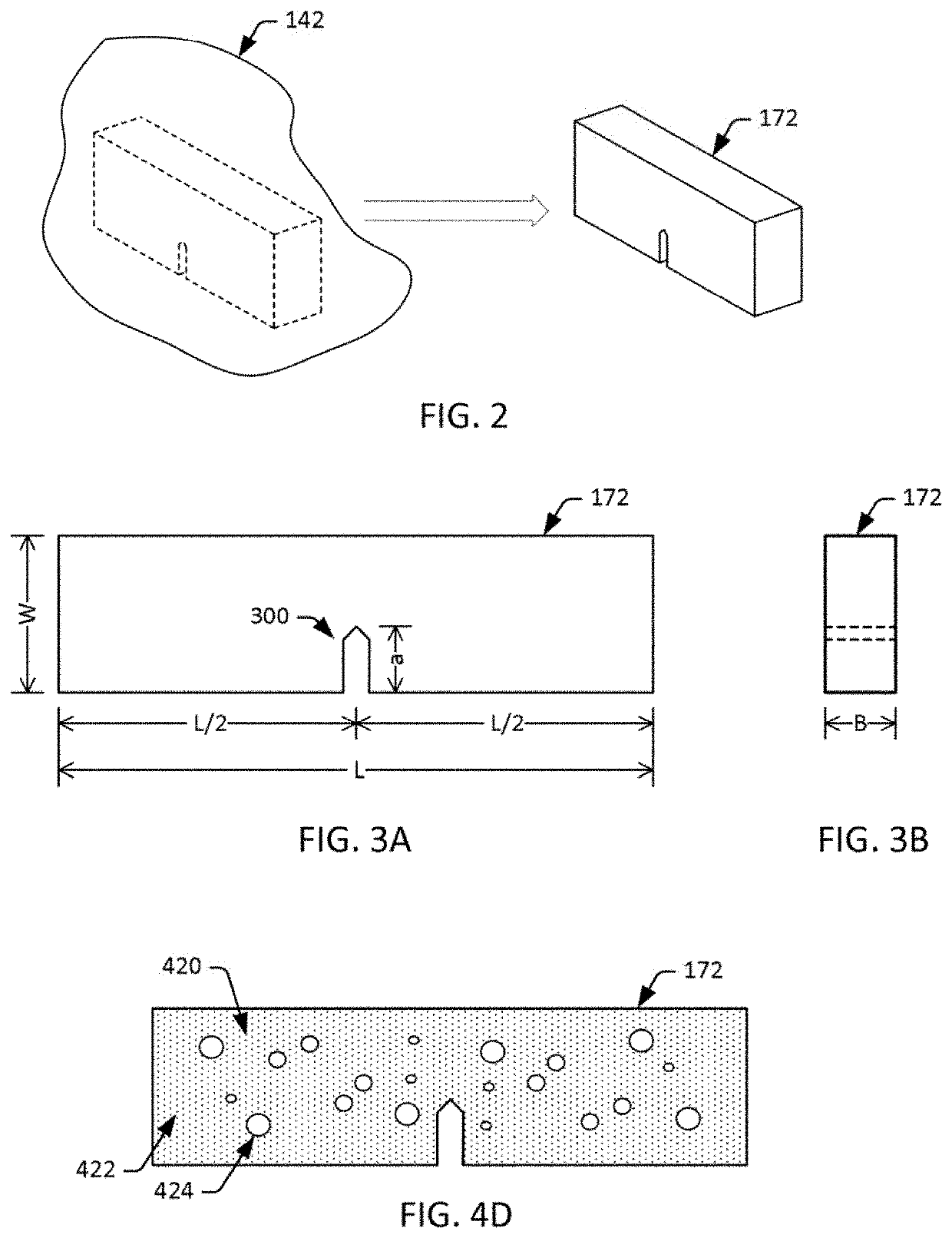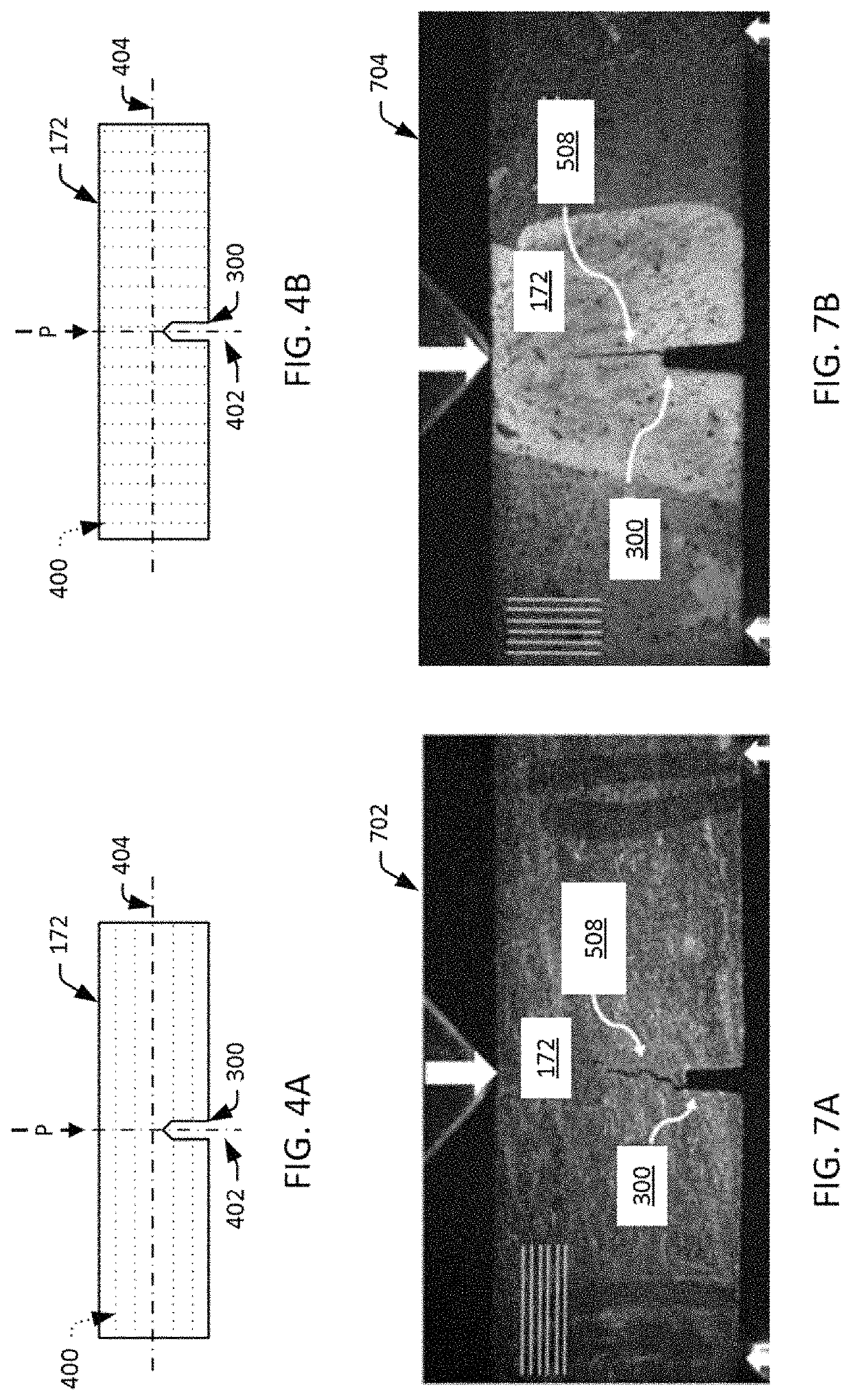Logging fracture toughness using drill cuttings
a drilling cutting and fracture toughness technology, applied in the field of geological formation assessment, can solve the problems of insufficient information for accurately determining the fracture toughness of subsurface formations, limited capability and accuracy, and high cost of traditional well assessment techniques, and achieve the effects of improving accuracy, reducing cost, and increasing tensile strength
- Summary
- Abstract
- Description
- Claims
- Application Information
AI Technical Summary
Benefits of technology
Problems solved by technology
Method used
Image
Examples
Embodiment Construction
[0039]Described are embodiments of systems and methods for determining fracture toughness of a subsurface geological formation using rock specimens fabricated from drill cuttings extracted during drilling of a wellbore into the formation. The techniques described can be employed, for example, over the course of a drilling operation to generate a log of fracture toughness across a depth interval of interest in the wellbore and the formation. With the combination of drill cuttings that are readily available, and the disclosed shaping and sizing of the specimens that can be formed from drill cuttings to accurately capture the properties of a KRS specimen, the proposed embodiments provide for accurately determining the fracture toughness of a subsurface formation including KRS, using readily available drill cuttings, and with little to no additional cost or delay in operating the well. Thus, the disclosed techniques can be employed, for example, to provide an accurate, real-time fractur...
PUM
 Login to View More
Login to View More Abstract
Description
Claims
Application Information
 Login to View More
Login to View More - R&D
- Intellectual Property
- Life Sciences
- Materials
- Tech Scout
- Unparalleled Data Quality
- Higher Quality Content
- 60% Fewer Hallucinations
Browse by: Latest US Patents, China's latest patents, Technical Efficacy Thesaurus, Application Domain, Technology Topic, Popular Technical Reports.
© 2025 PatSnap. All rights reserved.Legal|Privacy policy|Modern Slavery Act Transparency Statement|Sitemap|About US| Contact US: help@patsnap.com



